The modern workplace is in a state of constant flux. New technologies emerge, industries adapt, and skillsets evolve at a rapid pace. As a hiring manager, staying ahead of the curve and identifying top talent requires a keen eye for adaptability and a willingness to look beyond traditional career paths.
This presents a unique opportunity: the rise of career transition applicants. These individuals, seeking a fresh challenge or a new direction in their professional lives, often possess a wealth of transferable skills and a strong commitment to professional growth. They can be valuable assets to your team, bringing diverse perspectives and a thirst for learning.
However, pinpointing these motivated applicants within a sea of resumes can be challenging. The key lies in their upskilling activities. These activities offer a window into their dedication, initiative, and alignment with your company’s needs. Here are 4 key areas to focus on, along with strategies to effectively evaluate them.
1. Continuing Education and Online Courses
Look for applicants who have actively pursued online courses, workshops, or certificate programs relevant to your industry or desired role. This demonstrates their initiative and efforts to bridge skill gaps and stay current.
Evaluation Tips:
- Depth over Breadth: While a broad range of courses might seem impressive, prioritize candidates who have focused on acquiring in-demand skills directly related to your position.
- Credibility of Providers: Research the reputation and accreditation of the institutions offering the courses. Certifications from recognized organizations hold greater weight.
- Application of Knowledge: During interviews, delve deeper. Ask applicants to discuss specific projects or learnings from their coursework and how they envision applying them within your company.
2. Professional Development Activities
Participation in industry conferences, webinars, or professional association events showcases a career transition candidate’s commitment to continuous learning and staying connected with industry trends. These events often provide valuable networking opportunities, as well.
Evaluation Tips:
- Level of Engagement: Did the candidate simply attend, or did they actively participate in workshops, discussions, or networking events?
- Focus on Specific Topics: Look for attendance at events that align with the skills required for your role. This demonstrates a targeted approach to professional development.
- Networking and Follow-Up: Did the candidate connect with industry leaders or potential mentors? Did they follow up with new connections after the event? This showcases initiative and potential for building valuable relationships.
3. Volunteer Work or Freelancing in Their Target Field
Candidates who volunteer or freelance in their desired field gain practical experience and demonstrate a genuine passion for the new direction they’re pursuing. This hands-on experience can be invaluable, especially for those transitioning from a different industry.
Evaluation Tips:
- Nature of the Work: Assess the relevance of the volunteer work or freelance projects to the skills required in your role.
- Impact and Achievements: Explore the specific contributions the candidate made. Did they manage projects? Develop new skills? Quantifiable results can be very telling.
- Motivation for Volunteering: Uncover the candidate’s reasons for volunteering. Was it purely to gain experience, or was there a deeper connection to the cause? Understanding their motivations can shed light on their work ethic and values.
4. Self-Directed Learning Projects:
Entrepreneurial applicants who take it upon themselves to learn new skills through personal projects stand out. This could involve building a portfolio website, developing an app, or taking on freelance projects that utilize the skills needed for their target role.
Evaluation Tips:
- Complexity and Scope: Analyze the complexity of the project and the level of independent learning required. Did they tackle a real-world problem or simply complete a basic tutorial?
- Technical Proficiency: For technology-related projects, assess the technical skills showcased through the project.
- Problem-Solving Approach: Ask applicants to explain the challenges they encountered and how they overcame them. This reveals their problem-solving skills and critical thinking abilities.
The Takeaway: Gauge Career Transition Candidates by Their Efforts
Don’t overlook the potential of those seeking a career transition. Their dedication to growth and their transferable skills can be a winning combination for your team. By recognizing these valuable indicators in their resumes and interviews, you can uncover hidden talent within your applicant pool.
Remember, evaluating skill-building activities goes beyond a simple checklist. Look for evidence of initiative, focus, and a genuine desire to learn and contribute. By adopting a strategic approach to identifying these motivated individuals, you can build a diverse and adaptable team that thrives in the ever-changing world of work.
Need a partner in your search for the most qualified talent? Schedule a complimentary consultation with In Earth Consulting today.



